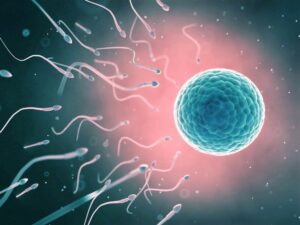SHARE WITH FRIENDS:
What is ovulation?
Ovulation is the process of releasing an egg from the ovary due to changes in hormone levels;
To become pregnant, the sperm must meet the egg cell and fertilize it;
Ovulation usually occurs 24-36 hours after a sudden rise in luteinizing hormone (LG), so detecting an LG rise will help you understand when ovulation begins;
Sperm can remain active for up to five days, so pregnancies can occur even if couples have sex before the egg is released.
As ovulation approaches, the female body begins to produce more estrogen hormone. This hormone causes the uterine mucosa to thicken and helps create a favorable environment for sperm.
High estrogen in turn causes a sharp increase in another hormone - luteinizing hormone (LG). A sudden rise in LG causes the release of egg cells from the ovary, a process called ovulation.
The egg cell can be fertilized only within 24 hours after ovulation. If it is not fertilized, rejection of the mucous membrane of the uterine shell occurs (along with the egg cell) and menstruation begins in the woman. At this time, the next menstrual cycle begins.
